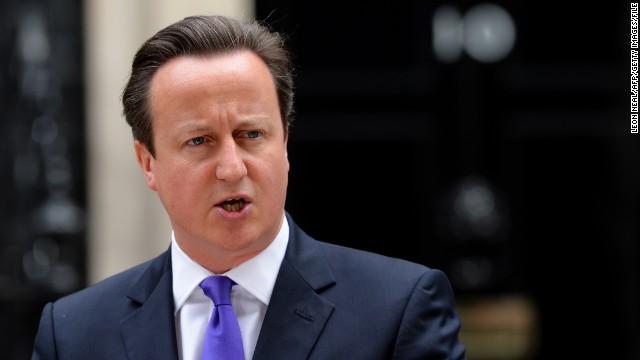
- British Prime Minister David Cameron is cracking down on Internet porn
- Cameron wants the UK’s Internet service providers to filter out porn by default
- To access pornography on home computers, users would have to opt in
- Critics of the plan say effective Web filters simply don’t exist
(CNN) — Saying that “the darkest corners of the Internet” pose a real threat to children, British Prime Minister David Cameron on Monday rolled out a plan that would, by default, block pornography on most computers, smartphones and tablets.
British wireless and Internet providers have agreed to put adult-content filters on phones, public Wi-Fi networks and home computers in the coming months. By the end of the year, the filters will become the default setting for anyone setting up broadband Internet service at home, Cameron said.
“I’m not making this speech because I want to (moralize) or scare-monger, but because I feel profoundly as a politician, and as a father, that the time for action has come,” Cameron said. “This is, quite simply, about how we protect our children and their innocence.”
All of those filters could be deactivated by those who can “prove” they are 18 or older, Cameron said.
The plan is the result of a monthslong effort by Cameron to restrict access to Internet porn. He has called Google and other search companies into meetings, demanding they do more to hide porn from children, and appointed Parliament member Claire Perry as a special adviser targeting the issues.
The plan will require no action from Parliament because service providers and other Web companies are participating voluntarily. Some already provide service with porn filters as their default settings.
Not surprisingly, Web freedom advocates and other critics were quick to decry the plan. For one, many say effective Web filters simply don’t exist.
“As a technological feat, it would be utterly impossible,” columnist Andy Dawson wrote in the Daily Mirror, a nationwide tabloid frequently critical of Cameron’s Conservative Party.
“His porn shield speech today, and the proposals that are in it are the deranged ravings of someone who has decided that something must be done, has decided what it is, but doesn’t (realize) that it isn’t actually feasible. He’s got just as much chance of banning (gray) clouds while giving us all access to the nice white, fluffy ones.”
Critics say that automated filtering technology inevitably allows offensive material through accidentally as well as creating “false positives” that block inoffensive content. Others, such as BBC technology correspondent Rory Cellan-Jones, say default-on filters can create a false sense of security among parents, who could become more lax in monitoring their children’s online behavior.
The Internet service providers that have signed off on the plan provide service to roughly nine out of 10 households in Great Britain.
In his speech, Cameron cited a two-pronged problem: the online exploitation of children through child pornography and the easy access children have to otherwise legal pornography at an early age.
“In one we’re talking about illegal material, the other legal material that is being viewed by those who are underage,” he said. “But both these challenges have something in common. They are about how our collective lack of action on the Internet has led to harmful — and in some cases truly dreadful — consequences for children.”
The prime minister announced an effort to expand and streamline currently fragmented child-porn databases and a new interpretation of law that will make porn depicting rape illegal.
He also announced a new “Family Friendly Wi-Fi” label that will allow hotels, restaurants and other businesses to advertise that the Web access they provide has porn filters enabled.
Two recent British murder trials in which the defendants were each said to have viewed images of child sexual abuse online have heightened public concern over the issue.
One case was that of April Jones, a 5-year-old girl whose disappearance last year in a remote part of Wales sparked a huge search. Mark Bridger was found guilty of her murder in May, but her body has still not been found. The other was the murder of a 12-year-old girl, Tia Sharp, by her grandmother’s partner.
Cameron said he had met with the parents of those two girls on Friday.
“Protecting the most vulnerable in our society, protecting innocence, protecting childhood itself — that is what is at stake,” Cameron said. “And I will do whatever it takes to keep our children safe.”